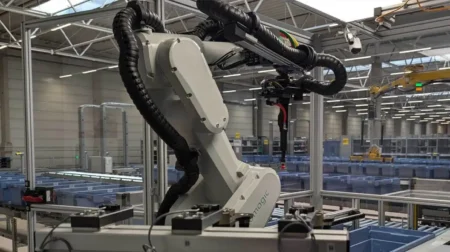The NHS has announced that it will be piloting artificial intelligence (AI) that can predict appointments that are likely to be missed and provide back-up bookings to maximise use of resources and offer financial savings.
The AI works by using algorithms and anonymised data, which analyse the reasons why someone may miss an appointment. This includes an overview of external factors, including the weather, traffic and jobs.
From here, appointments are arranged to suit the times that are most convenient for patients. An example of this could be scheduling weekend and evening slots for those who can’t take time off during weekdays.
Mid and South Essex NHS Foundation Trust is currently trialling the technology, with the trust supporting a population of 1.2 million people. It currently sees an average did not attend (DNA) rate of eight percent.
The NHS has predicted that, when the software is fully deployed, it will support the trust to see an additional 80-100,000 patients per year.
Amanda Pritchard, chief executive, NHS, said: “The NHS has been at the forefront of innovation for almost 75 years, adopting the latest technologies and treatments to ensure patients have the best possible experience.
“This new pilot is no different – it shows the NHS testing the latest technological advancements to address the real world challenges we face. The system will help ensure patients receive ‘smart’ appointments that are convenient and fit into people’s increasingly busy lives.
“It is a win-win for patients and the NHS alike – it will help us to free up doctors’ time to treat more patients, save taxpayers’ money as well as helping to reduce waiting times.”
The software, created by Deep Medical and co-designed by a frontline worker and NHS clinical fellow, will reportedly be tested at five more trusts from 2023.
Dr Deldar, co-founder of Deep Medical, said: “This really isn’t about people forgetting an appointment, at the core of this issue is challenging health inequalities in our communities. Whilst working on the frontline over COVID, I felt the impact of the pandemic on our services.
“We’ve created a system that can better identify and offer support for patients, whilst importantly tackle the NHS waiting list. Being a part of the NHS CEP has given me the framework and skills to scale innovations with purpose.”
An estimated eight million hospital appointments are missed every year, representing an annual loss of £1.2bn for the NHS.








